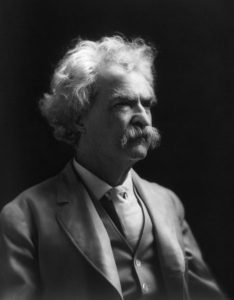“Finally, brethren, farewell. Become complete. Be of good comfort, be of one mind, live in peace; and the God of love and peace will be with you” (2 Corinthians 13:11).
As we approach the end of this letter to the Corinthian church, Paul the Apostle will close with a few final exhortations. One source reports that there are five imperative verbs here in 1 Corinthians 13:11 (1) and it appears that Paul wanted to leave a definite impact upon his readers with these last remaining words. In light of this, let’s take a closer look at the exhortations within this passage…
Farewell. While this may seem to be a nondescript way to end a letter, there is more behind this statement than just a simple “goodbye.” In the original language, this word is variously defined as to rejoice exceedingly, to be well, or to thrive. (2) So despite the Corinthians’ demonstrated lack of respect and appreciation for Paul, he remained steadfast in his desire for them to flourish and excel.
Become complete. This phrase suggests the idea of something that has been repaired or mended. It can also refer to something that has been put in order, arranged, or adjusted. (3) Although there was much that was broken within the Corinthian fellowship, Paul continued to encourage them to mend their ways. This also brings to mind a quote from the New Testament epistle of James…
“My brethren, count it all joy when you fall into various trials, knowing that the testing of your faith produces patience. But let patience have its perfect work, that you may be perfect and complete, lacking nothing” (James 1:2-4).
The Corinthians had endured their share of spiritual difficulties (many of which were self-inflicted) but James identifies a few of the spiritual benefits they could take from those experiences- benefits such as perseverance, maturity, and completeness. While the Corinthians had been challenged in their collective walk with Christ, God had the ability to use those things to facilitate their spiritual growth and maturity- or as Paul reminded the church at Rome, “…we know that all things work together for good to them that love God, who are called according to his purpose” (Romans 8:28).
Even if the circumstances appear otherwise, these passages remind us that God is able to make all things work together for our ultimate benefit. To quote from another of Paul’s New Testament epistles, “…He who has begun a good work in you will complete it until the day of Jesus Christ” (Philippians 1:6).
(1) The Bible Study Textbook Series, Studies In Second Corinthians (College Press) Paul T. Butler. [p. 445] Copyright © 1985 College Press Publishing Company https://archive.org/stream/BibleStudyTextbookSeriesSecondCorinthians/132Corinthians-Butler_djvu.txt
(2) G5463 chairo Strong’s Hebrew and Greek Dictionaries https://www.blueletterbible.org/lang/lexicon/lexicon.cfm?t=kjv&strongs=g5463
(3) G2675 katartizo Strong’s Hebrew and Greek Dictionaries https://www.blueletterbible.org/lang/lexicon/lexicon.cfm?t=kjv&strongs=g2675


 The American humorist Mark Twain is widely credited with the following quote: “Some people are troubled by things in the Bible they can’t understand. What troubles me are the things I can understand.”
The American humorist Mark Twain is widely credited with the following quote: “Some people are troubled by things in the Bible they can’t understand. What troubles me are the things I can understand.”  A machinist who is working to rebuild an automotive engine will often test it for cracks or other irregularities that may lead to failure. This generally involves spreading a fluorescent substance on the surface of an engine block and examining it under an ultraviolet light. This method often reveals issues that are undetectable by other means and allows the machinist to take corrective action.
A machinist who is working to rebuild an automotive engine will often test it for cracks or other irregularities that may lead to failure. This generally involves spreading a fluorescent substance on the surface of an engine block and examining it under an ultraviolet light. This method often reveals issues that are undetectable by other means and allows the machinist to take corrective action. Much like a photographer who makes use of a wide-angle lens, 2 Corinthians 13:2 captured the entire church at Corinth in a snapshot that brought the various elements of the congregation together. But unlike a photo that evokes a memory of a group activity, this passage served as a warning for every member of the Corinthian church.
Much like a photographer who makes use of a wide-angle lens, 2 Corinthians 13:2 captured the entire church at Corinth in a snapshot that brought the various elements of the congregation together. But unlike a photo that evokes a memory of a group activity, this passage served as a warning for every member of the Corinthian church. Many automobiles and motorcycles feature a tachometer as part of their instrument package. A tachometer is a type of gauge that monitors engine revolutions per minute (or “RPM”). Many tachometers feature a “redline” that identifies the safe RPM limit for each engine.
Many automobiles and motorcycles feature a tachometer as part of their instrument package. A tachometer is a type of gauge that monitors engine revolutions per minute (or “RPM”). Many tachometers feature a “redline” that identifies the safe RPM limit for each engine.